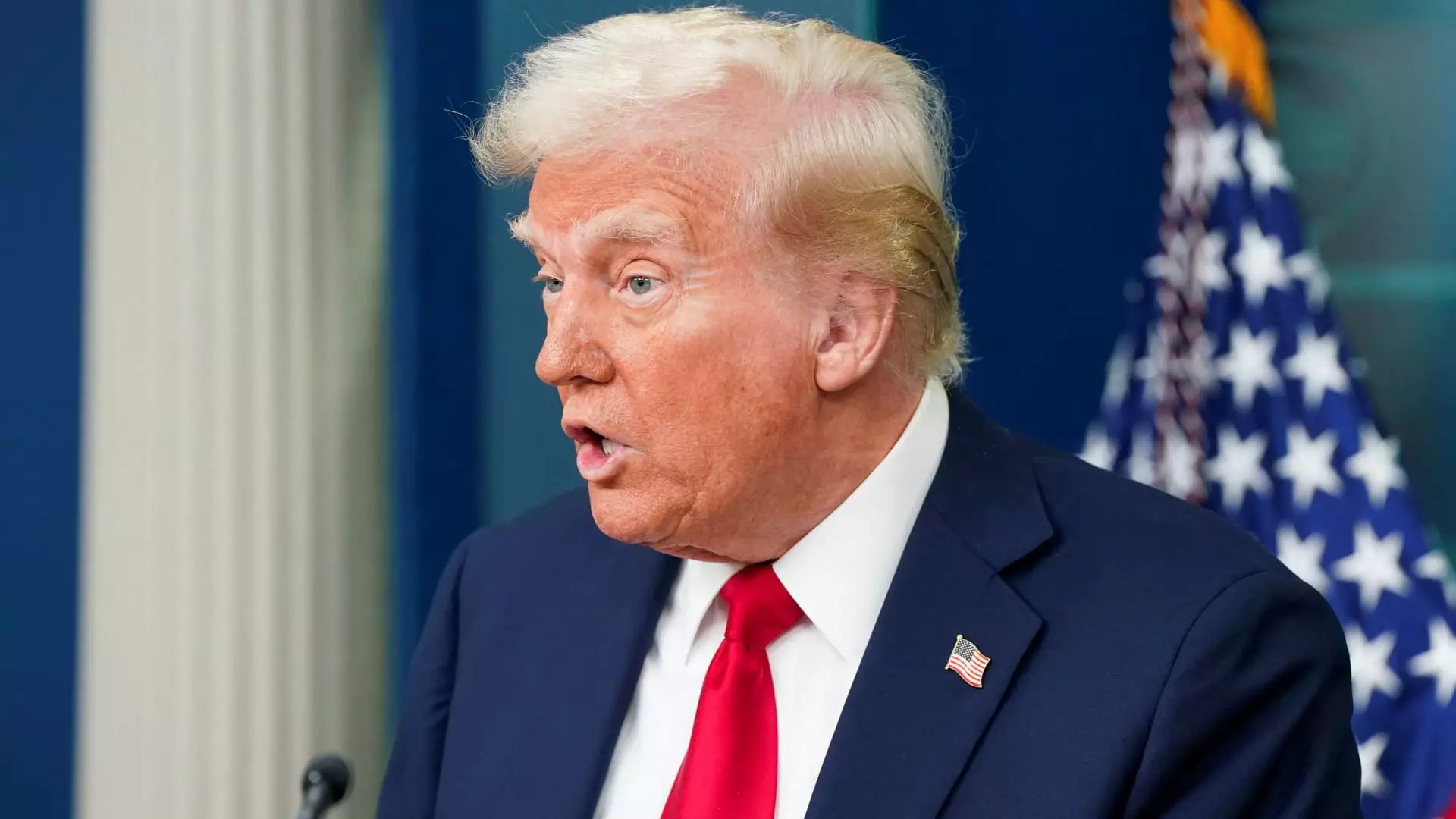On the evening of Wednesday, shortly before 9 p.m. ET, a tragic midair collision occurred between an American Airlines regional jet and an Army Black Hawk helicopter above Washington, D.C. The incident has been marked as the deadliest aviation disaster in the United States since November 2001, claiming the lives of all 64 passengers aboard the jet and the three soldiers in the helicopter. The catastrophe has prompted a thorough investigation and a shift from a search-and-rescue operation to one focused solely on recovery as emergency responders navigate the Potomac River in search of victims.
In the wake of this disaster, former President Donald Trump took the opportunity to criticize President Joe Biden and the Democratic Party’s diversity, equity, and inclusion (DEI) initiatives. Speaking from the White House, Trump suggested that these DEI measures could have played a role in the collision. He did not present any substantial evidence to support his claims, raising questions about the appropriateness and timeliness of his remarks. Instead of demonstrating a unified front in the face of tragedy, Trump quickly reverted to his habit of attacking political adversaries, undermining the somber moment by bringing partisan politics into the discussion.
The former president expressed his frustration through social media as well, particularly questioning the actions of the helicopter crew and air traffic control. He criticized the lack of effective communication in the moments leading up to the incident, stating in a post that it appeared preventable. The use of social media to voice grievances raises ethical concerns, especially when speaking about a disaster that has directly impacted many lives. This approach reflects an unfortunate tendency among some political figures to seize upon tragic events to advance their agendas, which may come across as insensitivity rather than constructive discourse.
Amidst political finger-pointing, the focus should ideally remain on understanding the circumstances surrounding the collision and ensuring such tragedies are prevented in the future. Investigative agencies and aviation experts must be given the space to thoroughly analyze the events that transpired, assessing whether procedural failures, human error, or equipment malfunction contributed to the fatal crash. Respect for the victims and their families should take precedence over partisan squabbles.
As details of the investigation unfold, the public deserves transparency and facts rather than speculation rooted in political agendas. Overall, navigating the aftermath of such a significant tragedy requires sensitivity, compassion, and a collective commitment to learn from past mistakes rather than assigning blame without evidence. It is crucial that leaders adopt a responsible approach to communication, particularly in the wake of catastrophic incidents where the human cost is immeasurable.


Leave a Reply